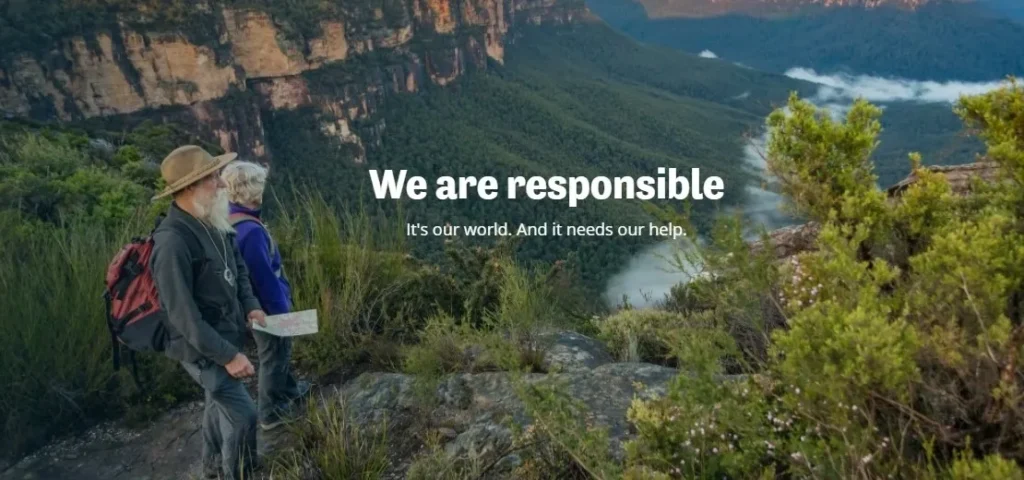
When Centennial Coal cancelled its Angus Place coal mine application last week, five threatened wetlands in the Gardens of Stone were saved and 123 million tonnes of coal was kept safely in the ground.
Chris Gambian, CEO of the Nature Conservation Council, says that’s equivalent to two years of NSW’s total climate pollution.
“But how did this victory happen in a state where coal companies are used to getting their way, no matter the cost?” Gambian asks in the latest NCC mailout to supporters.
“It’s a ripper of a story so we wanted to lift the hood and share with you the backstory of how this campaign has played out,” Gambian says.
“Almost ninety years ago, in 1932, Miles Dunphy proposed that this spectacular slice of Wiradjuri Country, the Gardens of Stone, should be protected as part of his vision for the Greater Blue Mountains National Park.
“Since then, the Blue Mountains National Park and World Heritage Area have been declared, but the last 39,000 hectares of the Gardens of Stone remain unprotected – because coal companies had an interest in mining deep underneath the ground.
“Over those 90 years groups like Colong Foundation for Wilderness, the Blue Mountains Conservation Society, Lithgow Environment Group, Bushwalking NSW, the Colo Committee, National Parks Association of NSW, and the National Trust have kept the Gardens of Stone vision alive, and documented and resisted the irreversible damage that underground coal mining has done to the rare ecosystems, cultural heritage and spectacular cliffs and pagodas above.
“Chris Jonkers and Julie Favell from the Lithgow Environment Group have been monitoring endangered wetlands for over 30 years, while Dr Haydn Washington from Colo Committee, and Keith Muir from the Colong Foundation for Wilderness spearheaded the campaign for many years, finding and publishing irrefutable evidence of the damage done by coal mines and achieving recognition of the unique ecology of the area.
“For years, Centennial Coal denied they were damaging the wetlands and waterways, and paid consultants to convince state and federal governments that they wouldn’t drain these endangered ecosystems.
“However, decades of tireless work and mounting scientific evidence forced Centennial Coal to admit in its most recent application that it would completely drain five remaining endangered wetlands, destroying the habitat of some of NSW’s rarest threatened plant and animals.
“Even this admission wasn’t enough to stop the mine. NSW development laws provide a pathway for Centennial to simply pay for ‘offsets’ while destroying the last wetlands.
“As the assessment process for the Angus Place expansion came to a head over the last two years, the campaign ramped up.
“Nature Conservation Council investigations last year revealed that the company was cheating on its greenhouse emissions assessment – it failed to account for 97% of the climate pollution it would cause.
“Over 1000 Nature Conservation Council supporters made submissions objecting to the mine, and campaigners from the Gardens of Stone Alliance groups pored over the thousands of pages of application documents to identify the incorrect assumptions, concerning impacts and hidden details.
“Local tourism operators also voiced their concerns about the mine – Thomas Ebersoll from Newnes Hotel gathered 11,000 petition signatures opposing the mine, and Emirates One & Only Wolgan Valley voiced their concerns about over 100 workers who would lose their jobs if the streams and rivers the resort relies on dry up due to the mine.
“The Colong Foundation and Gardens of Stone Alliance commissioned economic analysis showing that Lithgow has a bright future by protecting and investing in its natural heritage, with eco-tourism set to bring hundreds of thousands of visitors to the region.
“The Nature Conservation Council teamed up with Lithgow Environment Centre to tell the story of the wetlands being turned to ashes by longwall mining on social media.
“And this year the Nature Conservation Council and Gardens of Stone Alliance organised a field trip for journalists and Members of Parliament to tour the area and see what was under threat with their own eyes.
“After the ‘Parliamentary Friends of Nature’ trip, Members of Parliament from Labor, Liberal, Greens and Independents all worked to protect this spectacular region. Government MP Catherine Cusack made a strong speech in parliament and took the issue up with the Planning and Environment Ministers.
“A flurry of media stories inspired local seven-year-old Leo Williams to hold a lemonade stall in support of the Gardens of Stone, earning him a trip to Parliament to meet Planning Minister Rob Stokes and Independent MP Justin Field to advocate for protection of the area.
“Meanwhile the demand for coal was slowly waning as solar and wind power reduce the need to mine more coal. The NSW renewable energy roadmap that passed parliament in late 2020 prepares the state for a future without coal generation which took away the mining company’s trump card.
“Over in Thailand Centennial Coal’s parent company Banpu announced a plan to turn away from fossil fuels, which the Nature Conservation Council leveraged locally to point out the inconsistency of opening a new mine in Australia to mine coal until 2053.
“Finally, in the face of a growing wave of public, political and scientific opposition, and declining demand for their product, Centennial Coal withdrew their application.
“Centennial Coal has already stated that they will submit a new coal mine proposal in the region, albeit ten times smaller, further from the World Heritage Area and using a less damaging bord and pillar mining technique.
“With the Angus Place coal mine expansion withdrawn, this clears the way for protecting the final 39,000 hectares of the Gardens of Stone and implementing the Destination Pagoda tourist management plan for the reservation.
“Destination Pagoda is a plan written by Ian Brown and Elizabeth Dudley-Bestow for boosting the Lithgow economy by protecting and investing in the untapped scenic and ecological values of the region. Learn more about Destination Pagoda and what the reservation would look like
“Sydney is one of the only major cities to allow coal mining in its drinking water catchment and over the years, many NSW environment organisations and scientists have contributed to exposing the impacts of longwall mining, such as Total Environment Centre, National Parks Association, and Lock the Gate. they are doing to move this important campaign forward.”


